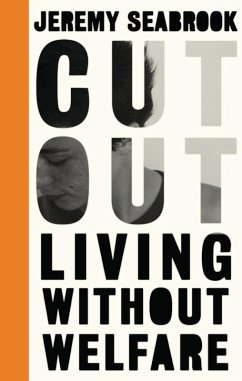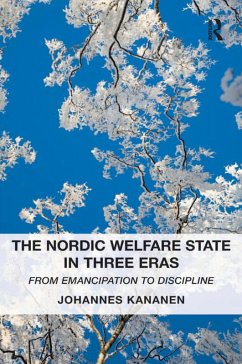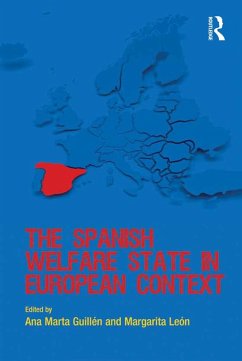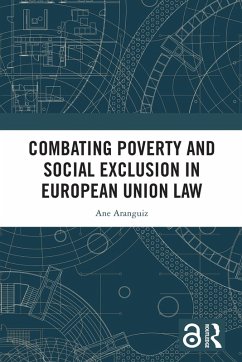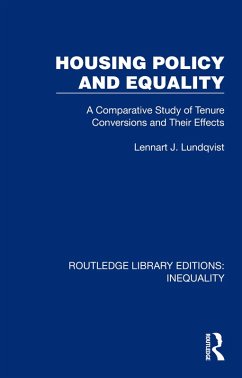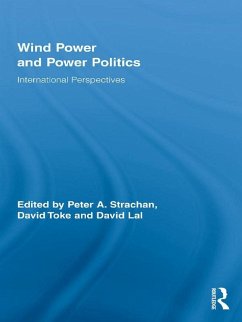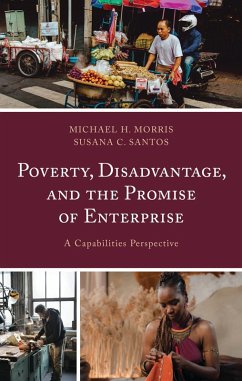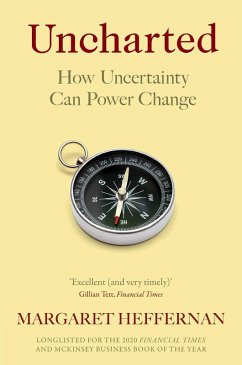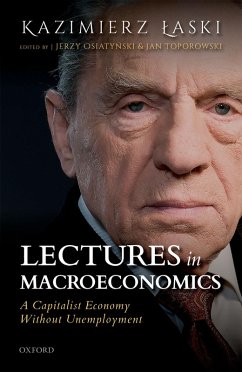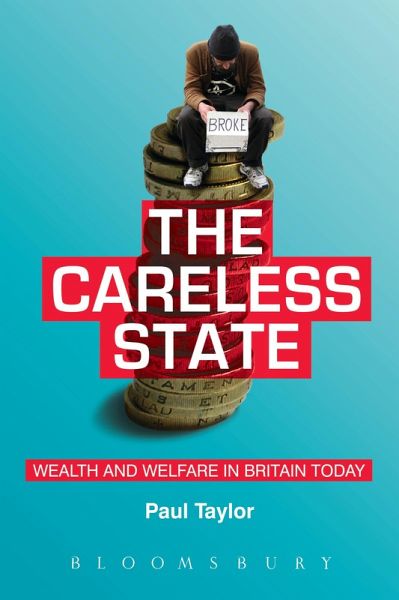
The Careless State (eBook, ePUB)
Wealth and Welfare in Britain Today epub
Versandkostenfrei!
Sofort per Download lieferbar
24,95 €
inkl. MwSt.
Weitere Ausgaben:

PAYBACK Punkte
12 °P sammeln!
This book considers the social and economic damage wrought by neo-liberalism, both in Britain and beyond. Paul Taylor analyses the effects of the increasing inequalities of income and wealth in recent years, concluding that a wide range of problems for the middle sections of society can be traced to the appearance of a class of the 'über-rich', the example they set and the demands they make.He takes the view that what has happened is the opposite of the much vaunted 'trickle-down effect'; there is actually a 'trickle-up effect' not only in the distribution of wealth but also in the ownership ...
This book considers the social and economic damage wrought by neo-liberalism, both in Britain and beyond. Paul Taylor analyses the effects of the increasing inequalities of income and wealth in recent years, concluding that a wide range of problems for the middle sections of society can be traced to the appearance of a class of the 'über-rich', the example they set and the demands they make.
He takes the view that what has happened is the opposite of the much vaunted 'trickle-down effect'; there is actually a 'trickle-up effect' not only in the distribution of wealth but also in the ownership of property and access to education, medicine and the law. He goes on to look at the government's failure to deal effectively with these problems, putting them in the context of the need to deal with the threat of terrorism and the effects of globalization. The book is highly relevant to the current crisis in the global financial system, especially with regard to its effects in the UK and USA, but it places that crisis in the context of wider developments.
He takes the view that what has happened is the opposite of the much vaunted 'trickle-down effect'; there is actually a 'trickle-up effect' not only in the distribution of wealth but also in the ownership of property and access to education, medicine and the law. He goes on to look at the government's failure to deal effectively with these problems, putting them in the context of the need to deal with the threat of terrorism and the effects of globalization. The book is highly relevant to the current crisis in the global financial system, especially with regard to its effects in the UK and USA, but it places that crisis in the context of wider developments.
Dieser Download kann aus rechtlichen Gründen nur mit Rechnungsadresse in A, B, BG, CY, CZ, D, DK, EW, E, FIN, F, GR, HR, H, IRL, I, LT, L, LR, M, NL, PL, P, R, S, SLO, SK ausgeliefert werden.




